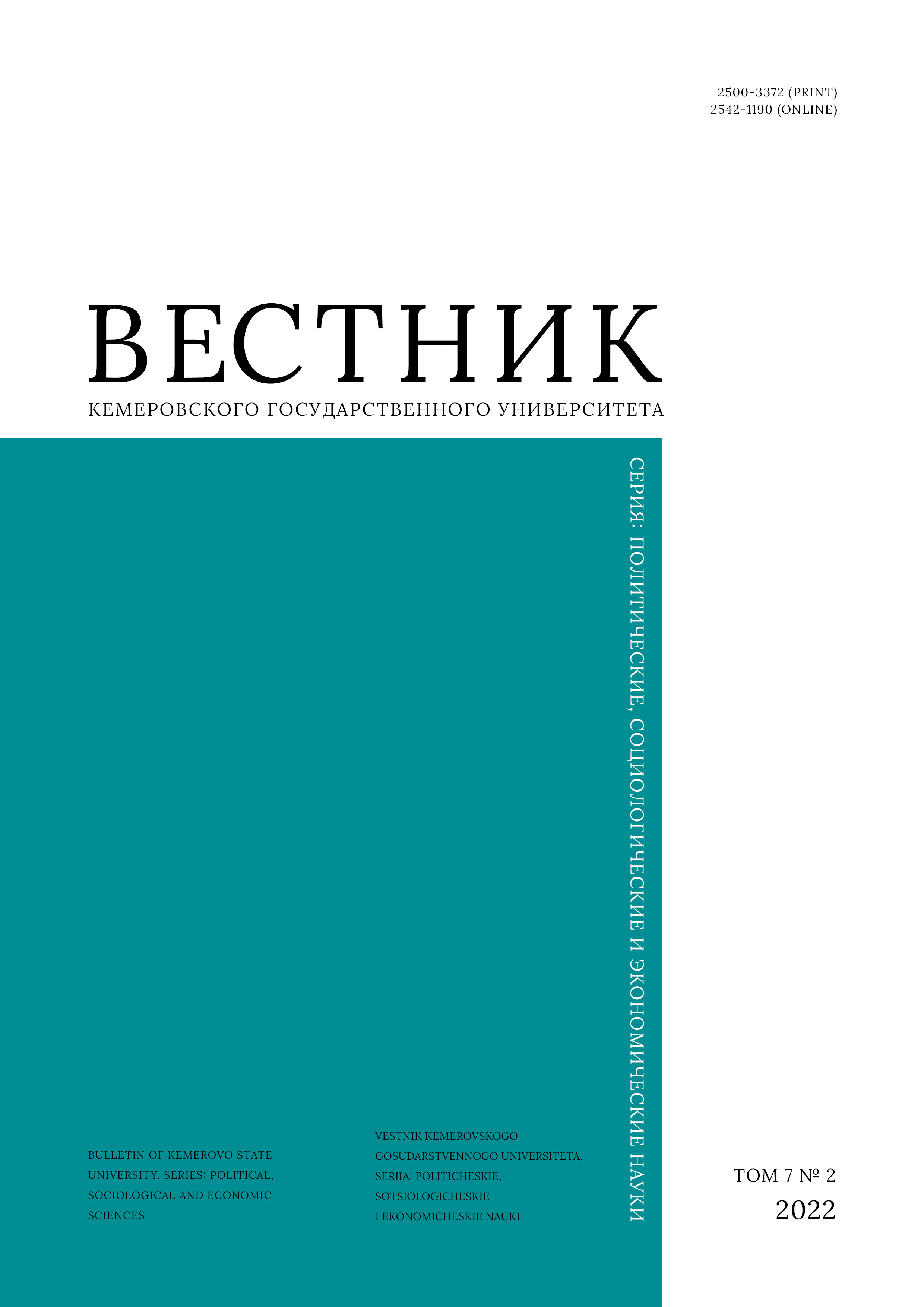Volgograd, Russian Federation
The present article describes the advantages, current problems, and development directions of public-private partnership in the Russian education system. Sustainable development requires inclusive, affordable, and high-quality education. Statistical data demonstrated a significant state underfunding of the Russian education system and, as a result, the poor technical state of education facilities in the country. Therefore, public-private partnership can serve as a way to attract financial resources and competences of private partners to the education system. The paper focuses on such issues as the advantages of public-private partnership in the education system, the needs of the main stakeholders of public-private partnership projects, socio-economic effects of public-private partnership, etc. Based on various financial, economic, legal, and managerial issues, the author gives practical recommendations, e.g., state assistance at the local level, universal box solutions for standard education facilities, a new legitimate tool for changing public-private partnership projects, etc. The problem needs a systematic approach. The study relied on the general scientific method of dialectical cognition of economic and financial phenomena, as well as analysis, synthesis, and expert evaluation. The systematic approach can facilitate managerial decisions in the sphere of education and public-private partnership.
public-private partnership, Russian education system, sustainable development, state, business, population, private partner, public partner, projects
1. Schrüfer G., Vrenger K., Lindemann I. "Reflectories" for the promotion of competences in education for sustainable development using the example of climate change. Voprosy obrazovaniya, 2020, (2): 152-174. (In Russ.) https://doi.org/10.17323/1814-9545-2020-2-152-174
2. Grachev V. A., Ilin I. V., Ursul A. D., Ursul T. A., Andreev A. I. Education for sustainable development in Russia: problems and prospects. Moscow: Uchitel; MSU, 2017, 207. (In Russ.)
3. Ermakov D. S., Ermakov A. S., Kolesova E. V. On the application of foresight in education for sustainable development. Scholarly Notes of Transbaikal State University, 2021, 16(4): 55-64. (In Russ.) https://doi.org/10.21209/2658-7114-2021-16-4-55-64
4. Ursul A. D. Digitalization and education for steady development: the prospects of interconnection in the evolution process. Znanie. Ponimanie. Umenie, 2020, (2): 39-54. (In Russ.) https://doi.org/10.17805/zpu.2020.2.4
5. Patrinos H. A., Barrera-Osorio F., Guaqueta J. The role and impact of public-private partnerships in education. Washington D.C. World Bank Publications, 2009, 116.
6. Kim J., Han M. Education financing and public-private partnership development assistance model. Procedia - Social and Behavioral Sciences, 2015, 177: 100-103. https://doi.org/10.1016/j.sbspro.2015.02.345
7. LaRocque N. Public private partnerships in basic education: an international review. CFBT Education Trust, 2008, 60.
8. Li F. Practice and Enlightenment of public-private partnership mode of basic education abroad. Studies in Foreign Education, 2010, (7): 1-5. (In Chin.)
9. Tang X., Ni L. International public-private partnership for basic education model: debate and enlightenment. Studies in Foreign Education, 2013, (4): 88-95. (In Chin.)
10. Zhang M., Liu Y., Cheng J. International experience and reference of PPP model in inclusive preschool education. Proceedings of the 2nd International Workshop on Education Reform and Social Sciences (ERSS 2019), 2019, 147-152. https://doi.org/10.2991/assehr.k.191206.030
11. Aleev B. R. Public private partnership in educational cluster. Human Capital and Professional Education, 2018, (2): 9-13. (In Russ.)
12. Baksheeva A. D. Interaction of the state, business and educational institutions within public and private partnership. Gosudarstvenno-chastnoe partnerstvo, 2016, 3(1): 63-78. (In Russ.) https://doi.org/10.18334/ppp.3.1.35139
13. Veselova N. Yu., Eroyan A. E., Smychagin E. O. Public private partnership in educational sector of Russia. Science and world, 2016, (6-2): 21-25. (In Russ.)
14. Zavyalova E. B. On the question of the expediency of PPP in education. Gosudarstvenno-chastnoe partnerstvo, 2015, 2(4): 217-226. (In Russ.) https://doi.org/10.18334/ppp.2.4.36982
15. Kireeva A. V., Zolotareva A. B. Legal models of state-private interaction in the educational sphere. Legal Studies, 2016, (1): 1-17. (In Russ.) https://doi.org/10.7256/2409-7136.2016.1.17562
16. Melnikov M. S. Public-private partnership in education. Rossiiskoe predprinimatelstvo, 2017, 18(3): 303-308. (In Russ.) https://doi.org/10.18334/rp.18.3.37296
17. Pavlovskaya S. V., Sirotkina N. G. Public-private partnership in the field of education. Modern management: problems and prospects: Proc. XV Intern. Sci.-Prac. Conf., St. Petersburg, 23-24 Apr 2020. St. Petersburg: SPbSUE, 2020, 367-373. (In Russ.)
18. Teslenko I. V., Dolgikh M. N. Public-private partnership in the education system: trends, problems, prospects. Fundamental research, 2016, (2-1): 211-215. (In Russ.)
19. Glushko Yu. V., Kolodina N. V. Characteristics of public-private partnership in education in Russia and abroad. Gosudarstvenno-chastnoe partnerstvo, 2017, 4(2): 147-153. (In Russ.) https://doi.org/10.18334/ppp.4.2.37834
20. Ibyatov F. M. Foreign experience in the implementation of public-private partnership projects in the field of health and education. Upravlenie / Management (Russia), 2019, 7(1): 35-39. (In Russ.) https://doi.org/10.26425/2309-3633-2019-1-35-39
21. Trunova O. D., Silin M. V. Implementation features of public-private partnership in education in Russia and international practice. Ars Administrandi, 2015, (4): 82-96. (In Russ.)
22. Zaripova I. R., Margilevskaya E. V. The need for developing an economic mechanism of public-private partnership in vocational education. Kreativnaya ekonomika, 2016, 10(3): 279-290. (In Russ.) https://doi.org/10.18334/ce.10.3.34965
23. Kilinkarov V. V. Public-private partnership in higher education and science in Russia. Vestnik of Saint Petersburg University. Law, 2019, 10(2): 210-225. (In Russ.) https://doi.org/10.21638/spbu14.2019.202
24. Romanova T. F., Meliksetyan S. N. Development of state-private partnership in the sphere of higher education. Economic sciences, 2018, (162): 146-151. (In Russ.)
25. Teslenko I. V. Public-private partnership development in the Russian Federation on the example of the system of secondary vocational education. Vestnik of Volga State University of Technology. Ser.: Economics and Management, 2019, (2): 5-17. (In Russ.) https://doi.org/.25686/2306-2800.2019.2.5

















